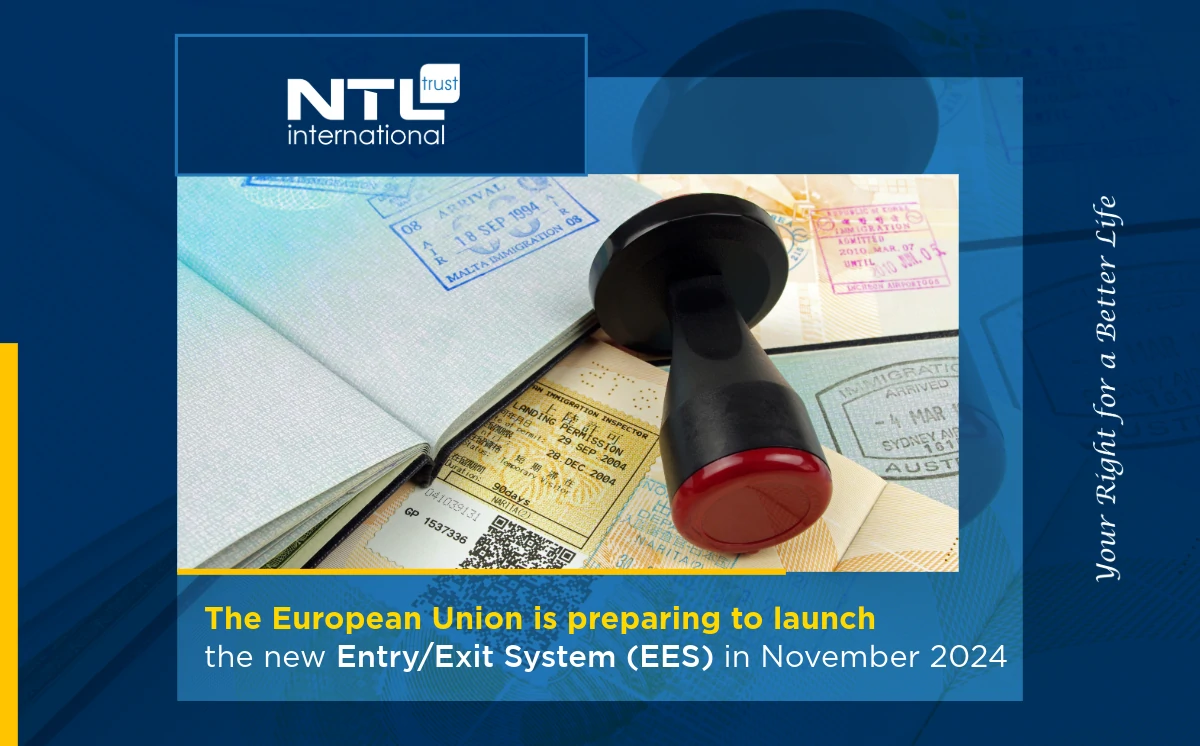
The EU plans to implement the Entry/Exit System (EES) for non-EU citizens starting November 10, 2024. This digital system will replace traditional passport stamps, with travelers’ data recorded electronically upon entering or leaving the Schengen Area. The EES aims to ensure visitors stay within the allowed 90-day stay within 180 days.
The EES will start in November:
Travelers will need to provide fingerprint and facial biometric data during their first entry. Subsequent crossings will be easier, requiring only a passport scan at a self-service kiosk to verify identity. Travelers will also need to register online for free before traveling to the EU.
However, concerns have been raised about potential travel delays due to the new system (EES). The European Commission has proposed a gradual and flexible implementation to reduce waiting times.
This change coincides with the expected launch of the European Travel Information and Authorization System (ETIAS) in 2025, which will require visitors from 60 visa-exempt countries to obtain an entry permit for a fee of €7, valid for three years.
With these changes ( EES), passport stamps may become a thing of the past, raising questions about the loss of personal touch in travel as we move further into the digital age.
The special evening of the Embassy of St. Kitts and Nevis in Dubai
The special evening of the Embassy of St. Kitts and Nevis in Dubai was on December 1st.
Michael Martin is the new CEO of the St Kitts and Nevis CBI Unit
Michael Martin has been announced as the new CEO of CBI Unit in Saint Kitts and Nevis.
Starting work on the PVIP program in Malaysia
Starting work on the PViP program in Malaysia with the beginning of last October
The latest updates in the Turkish CBI law through real estate ownership
With the beginning of the new year, work will start in accordance with the latest updates of the Turkish CBI Law through real estate ownership.
Green Visa in UAE, longer stay & more facilities
Recently, the UAE has started receiving applications for Green Visas/residence permits.
As part of an ongoing effort to create new opportunities and attract a larger audience of investors and entrepreneurs, the UAE has introduced a new visa that allows its holder to reside in Dubai for 5 years, with the possibility of renewal.





